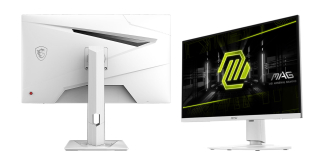In KitGuru's most recent survey, a whopping 70% of readers said that they would go and buy a 30″ TFT panel (2560×1600) at the end of the month if the price was less than £500. That's a HUGE amount of sales. Why are the panel guys ignoring it?
KitGuru is sure that no illegal activity has happened and that there cannot possibly be any kind of collusion or price-fixing. However, you really have to wonder why the price of a 30″ panel is still over £1,100 – and has remained in that space for more than 5 years, while the price of the panels around 26″ has dropped and dropped and dropped.
Nope. Nothing wrong there. We're sure of that.

Before running our poll, KitGuru wondered if the reason why there are no more 2650×1600 panels available, was because there was no demand (insert tongue in cheek – leave it there).
The reality is that 70% of you would buy a 30″ panel at the end of the month IF the price dropped below £500. How much below varies, but you get the gist.
Pay close attention, we're going to hit you with some maths.
KitGuru hits up to 450,000 UK-based enthusiasts a month. If you guys buy a screen just once every 3 years, then that's 150,000 screens a year. Instead of saying that 70% of these people would go with a 30″ panel, let's say that half the people would choose a screen bigger than 22″. Then let's say that 70% of those would decide to spend an extra £300 for the bigger/better screen.
Wild speculation, we're sure, but if KitGuru is right then the maths makes for serious reading for any monitor company.
450,000 / 3 = 150,000 / 2 = 75,000 x 70% = 52500 x £300 = £15.75m (or $24.57m in new money).

KitGuru says: Post-2008, which company is rich enough to ignore that kind of revenue? With a profit of around 20% that's more than £3 million ready to be added to the bottom line.
Comment below or give us a high-resolution opinion in the KitGuru forum.
 KitGuru KitGuru.net – Tech News | Hardware News | Hardware Reviews | IOS | Mobile | Gaming | Graphics Cards
KitGuru KitGuru.net – Tech News | Hardware News | Hardware Reviews | IOS | Mobile | Gaming | Graphics Cards



That’s perhaps the first time I see a tech site misrepresenting its own poll results. Looking at them, only 26% said they’d buy a 30″ monitor if it was under £500. 21% more said they’d buy if it was under £400, and 21% wanted an even lower price. How this converts to “70% of you would buy a 30″ panel at the end of the month IF the price dropped below £500″ is not clear to me.
Speaking of which, I had no fitting choice to vote for. I certainly would be interested in a cheap 2560×1600 monitor, I just find 30” a little too big. True, this size and resolution would have the same 100 DPI that my current monitor has, but a little higher DPI and lower size would be nicer.
£499 = 27%
£399 = 21%
less than £399 = 21%
Total = 69%
1 percent out ? seems fairly accurate ET to me……
Good math… 🙂 I hope “they” hear you…
The math is fine, the phrasing isn’t. If the item said “70% of people would buy a 30″ monitor if it cost way under £399″ then that would have represented the truth. But what it makes it as if 70% of people would rush to buy a 30” monitor the moment it dropped to £499, which is a huge misrepresentation of the figures.
Thanks for all the interest in the maths. The bit you’re missing is that we ‘added £300’ to the price of the screen that would have been purchased.
The ‘£300’ is the random factor.
It will actually be a spread – depending on which reply the reader chose.
So the person who might have been thinking ‘£99 for a new screen’ ends up at £399 and the one who was thinking £199, gets £499.
The bottom line is that there IS a huge demand for low priced 2560×1600 screens and the apparent complete lack of competition in this area is quite scary.